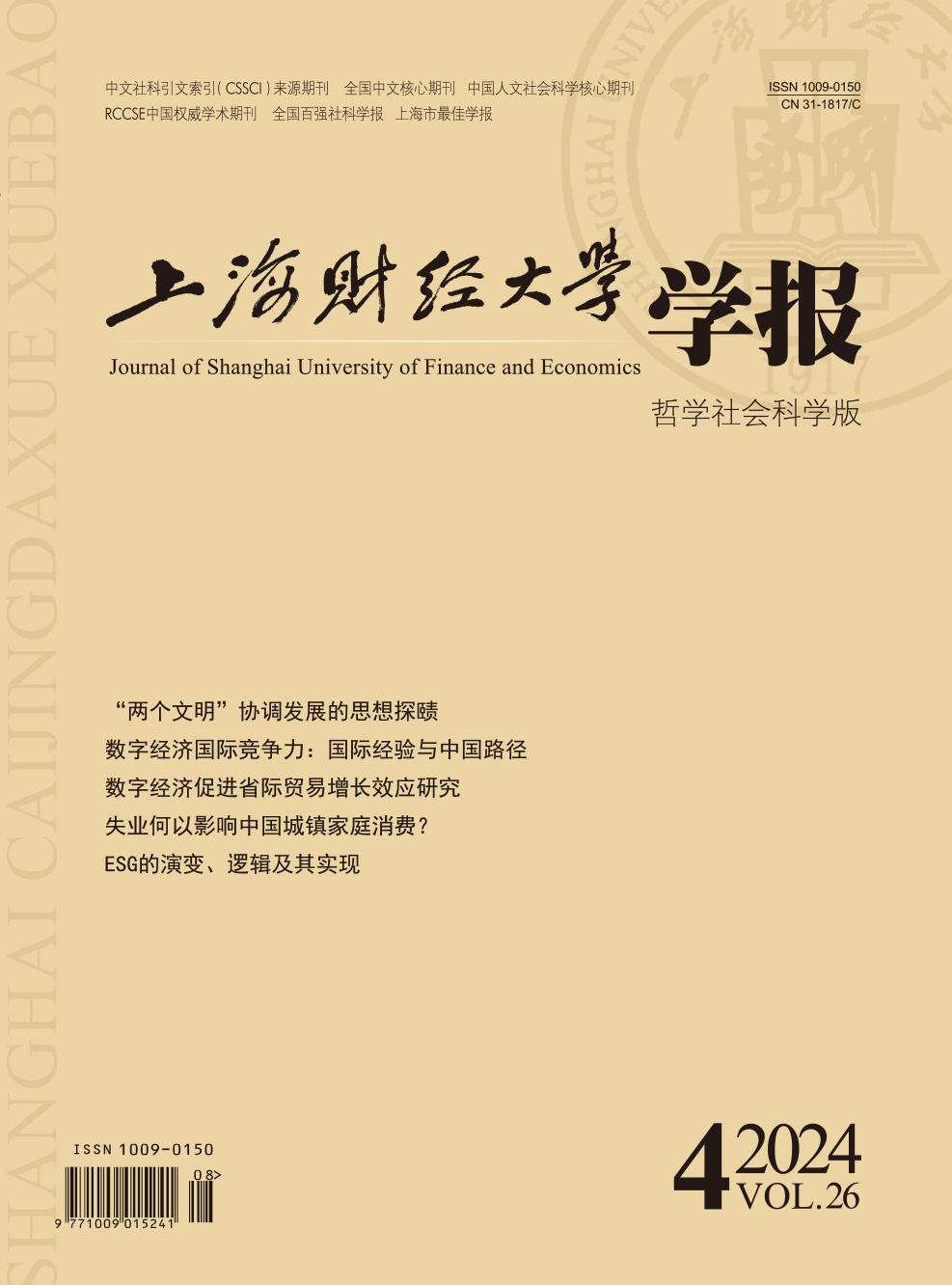基于2004—2014年的月度频率中国城镇住户调查,文章评估了失业冲击对中国城镇家庭消费的影响,以及各类消费保险机制的相对重要性。结果显示:第一,在遭遇失业冲击的6个月内家庭收入平均下降25%,但是消费仅下降了6%,说明城镇家庭的自我保险较好地应对了失业冲击。第二,200多项消费支出项目中,饮食服务、交通通信、医疗和耐用品下降最为显著,可以解释消费降幅的94%。第三,失业保险等社会保障以及改革开放以来经济高速增长所积累的家庭财富对消费平滑发挥了重要作用,而亲友或银行借贷、配偶劳动供给等影响较小。需要指出的是,尽管失业对家庭消费支出的短期影响较小,但鉴于失业保险金的领取期限最长为24个月,且家庭储蓄等资源会逐渐消耗,因此仍需高度重视并防范家庭长期失业的风险。
失业何以影响中国城镇家庭消费?
摘要
参考文献
11 Aguiar M, Hurst E. Consumption versus expenditure[J]. Journal of Political Economy,2005,113(5):919–948. DOI:10.1086/491590
12 Aguiar M, Hurst E. Deconstructing life cycle expenditure[J]. Journal of Political Economy,2013,121(3):437–492. DOI:10.1086/670740
13 Andersen A L, Jensen A S, Johannesen N, et al. How do households respond to job loss? Lessons from multiple high-frequency datasets[J]. American Economic Journal: Applied Economics,2023,15(4):1–29. DOI:10.1257/app.20210206
14 Blundell R, Pistaferri L, Saporta-Eksten I. Consumption inequality and family labor supply[J]. American Economic Review,2016,106(2):387–435. DOI:10.1257/aer.20121549
15 Blundell R, Pistaferri L, Saporta-Eksten I. Children, time allocation, and consumption insurance[J]. Journal of Political Economy,2018,126(S1):S73–S115. DOI:10.1086/698752
16 Bredtmann J, Otten S, Rulff C. Husband’s unemployment and wife’s labor supply: The added worker effect across Europe[J]. ILR Review,2018,71(5):1201–1231. DOI:10.1177/0019793917739617
17 Chodorow-Reich G, Coglianese J, Karabarbounis L. The macro effects of unemployment benefit extensions: A measurement error approach[J]. The Quarterly Journal of Economics,2019,134(1):227–279. DOI:10.1093/qje/qjy018
18 Freyaldenhoven S, Hansen C, Shapiro J M. Pre-event trends in the panel event-study design[J]. American Economic Review,2019,109(9):3307–3338. DOI:10.1257/aer.20180609
19 Ganong P, Noel P. Consumer spending during unemployment: Positive and normative implications[J]. American Economic Review,2019,109(7):2383–2424. DOI:10.1257/aer.20170537
20 Gerard F, Naritomi J. Job displacement insurance and (the lack of) consumption-smoothing[J]. American Economic Review,2021,111(3):899–942. DOI:10.1257/aer.20190388
21 Guvenen F, Karahan F, Ozkan S, et al. What do data on millions of U. S. workers reveal about lifecycle earnings dynamics?[J]. Econometrica,2021,89(5):2303–2339. DOI:10.3982/ECTA14603
22 Halla M, Schmieder J, Weber A. Job displacement, family dynamics, and spousal labor supply[J]. American Economic Journal: Applied Economics,2020,12(4):253–287. DOI:10.1257/app.20180671
23 Hastings J, Shapiro J M. How are SNAP benefits spent? Evidence from a retail panel[J]. American Economic Review,2018,108(12):3493–3540. DOI:10.1257/aer.20170866
24 He H, Huang F, Liu Z, et al. Breaking the “iron rice bowl”: Evidence of precautionary savings from the Chinese state-owned enterprises reform [J]. Journal of Monetary Economics, 2018, 94: 94–113. DOI:10.1016/j.jmoneco.2017.12.002
25 Hendren N. Knowledge of future job loss and implications for unemployment insurance[J]. American Economic Review,2017,107(7):1778–1823. DOI:10.1257/aer.20151655
26 Johnston A C, Mas A. Potential unemployment insurance duration and labor supply: The individual and market-level response to a benefit cut[J]. Journal of Political Economy,2018,126(6):2480–2522. DOI:10.1086/699973
27 Kolsrud J, Landais C, Nilsson P, et al. The optimal timing of unemployment benefits: Theory and evidence from Sweden[J]. American Economic Review,2018,108(4-5):985–1033. DOI:10.1257/aer.20160816
28 Kroft K, Notowidigdo M J. Should unemployment insurance vary with the unemployment rate? Theory and evidence[J]. The Review of Economic Studies,2016,83(3):1092–1124. DOI:10.1093/restud/rdw009
29 Landais C, Spinnewijn J. The value of unemployment insurance[J]. The Review of Economic Studies,2021,88(6):3041–3085. DOI:10.1093/restud/rdaa086
30 Schmieder J F, Von Wachter T, Bender S. The effects of extended unemployment insurance over the business cycle: Evidence from regression discontinuity estimates over 20 years[J]. The Quarterly Journal of Economics,2012,127(2):701–752. DOI:10.1093/qje/qjs010
31 Zhao D, Chen Y F, Shen J H. Mortgage payments and household consumption in urban China[J]. Economic Modelling,2020,93:100–111. DOI:10.1016/j.econmod.2020.07.008
32 Zhao D, Guo J Y, Zou H, et al. From price to gain: The evolution of household income volatility and consumption insurance in urban China[J]. China & World Economy,2022,30(6):113–136.
33 Zhao D, Wu T H, He Q W. Consumption inequality and its evolution in urban China[J]. China Economic Review,2017,46:208–228. DOI:10.1016/j.chieco.2017.09.015
引用本文
赵达, 郭镜元, 宋泽. 失业何以影响中国城镇家庭消费?[J]. 上海财经大学学报, 2024, 26(4): 92-106.
导出参考文献,格式为:





 5567
5567  11435
11435

